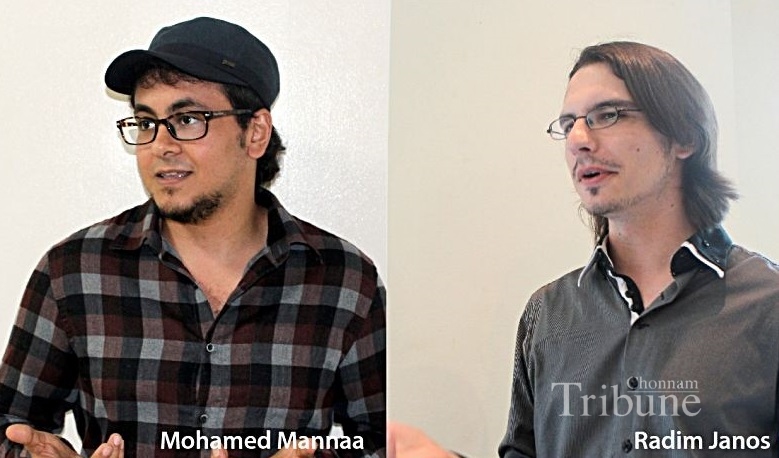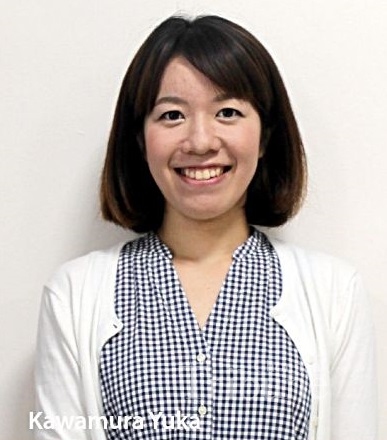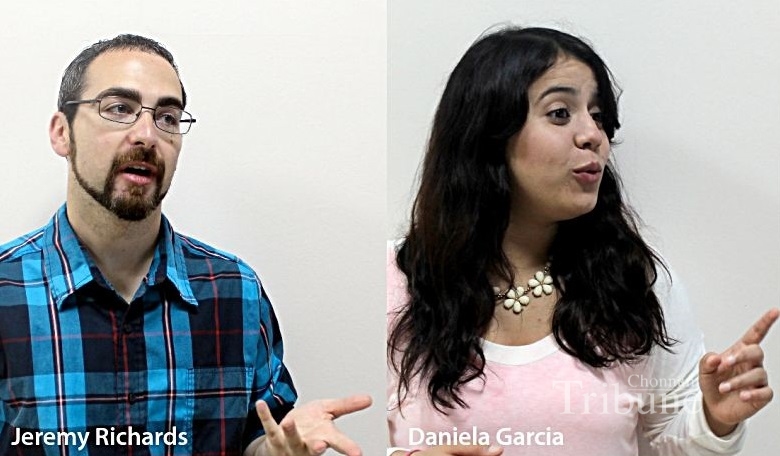외국인 학생들에게 듣는다: 한국생활, 토픽, 영어전용강좌
The number of international students who want to study in Korea has risen. To attract them to Korean universities, the Korean Government has recently recommended that universities lower the admission standard of foreign students’ Korean language proficiency, the score of the Test of Proficiency in Korea (TOPIK). Also most of the universities provide courses taught in English to help foreign students’ study and to improve local students’ English abilities as well. The Chonnam Tribune interviewed several foreign students studying at Chonnam National University (CNU) and heard whether they have experienced discrimination in Korea and their opinions about the TOPIK score and English-taught courses.
Q: How long have you been in Korea and while you are studying here, have you ever experienced discrimination because you are a foreigner? Has there been any trouble between you and foreign students from different countries?

Mohamed Mannaa (Egypt)
I have been in Korea almost one year. I have never experienced discrimination. Of course, because of the language difficulty, I could not communicate a lot with Koreans. It is inconvenient when I go to see a doctor because of the communication barrier, but I was thankful to Koreans. Most of them were kind and respected me. I’m not sure, but I think some of Koreans tend to see Americans more highly than other foreigners. Also, while I was learning Korean at the LEC, there was none of trouble or discrimination between other countries’ people. There are Chinese students in our class and they learn much faster and do better than us because the Chinese are similar with Koreans. It was difficult for me but we hang out with them well.

Kawamura Yuka (Japan)
I have been in Korea for one year. I have experienced discrimination in Korea when I visited a Korean restaurant with my Asian friends. After the owner of restaurant knew that we were foreigners, she did not provide any services to us. I also visited another restaurant and there were foreigners who were from western countries. We were as foreigner as them, however, the owners behaved kindly and treated them well. I think it is because Korea and Japan are not in a good relationship. Also, there are some difficulties while learning Korean because of the high numbers of Chinese people at CNU. As most of them are Chinese, at first, it was hard to hang out with them and I had trouble to adjust the class. In addition, everyone was not good at speaking Korean, so it was hard to communicate with them. There were even teachers, who use Chinese during the class and I felt being alienated in that class.
Jeremy Richards (United States of America)
As an exchange student I have been in Korea for only three months. I’m not sure if what I may perceive as discrimination may only be a difference in culture. I have found that some have purposely avoided eye contact with me; even there were some people who close their eyes while they were passing by me. I do not know if this is common or discriminatory. The one thing I would say with certainty is that most of taxi drivers are less likely to pick up foreigners after a certain time of night.
Q: CNU has lowered the TOPIK score so more foreign students could come and study. Do you think TOPIK is a good way to learn Korean and to evaluate foreign students’ Korean language ability?
Mohamed Mannaa (Egypt)
I do not think it is not that helpful. I have decided to learn Korean because I wanted to get into a Korean graduate school and I needed to pass TOPIK 3. Despite passing TOPIK 3, my ability in Korean speaking or listening was not improved at all. I think it would be much better if we can study both my major and Korean language at the same time. It will be more effective to learn Korean rather than only studying for TOPIK.
Kawamura Yuka (Japan)
There are so many foreign students who cannot speak Korean at all. However, they have already passed TOPIK 3 or 4 easily and could get an opportunity to enter a graduate school in Korea, regardless of their Korean language ability. As a result, my opinion is that TOPIK is not a good indicator to evaluate foreign students’ Korean language ability. I think Korean universities including CNU must require higher TOPIK score than before.

Daniela Alejandra Garcia Guedez (Venezuela)
It is true that we can learn Korean through studying TOPIK, but not as much as I wanted. I want to learn more Korean speaking or writing skills, so I’m planning to learn Korean continuously when I go to graduate school. It would be much better to form different rules such as learning Korean from 6 months or 1 year in somewhere rather than only studying for TOPIK.
Q: Then, let’s talk about courses taught in English at CNU. Most of exchange students who came from foreign countries take the courses together with Korean students. Do you think the courses are working well?
Radim Janos (Czech Republic)
As an exchange student, I took three courses in this spring semester. All of professors were really good at English, so I could understand the lectures easily and I really enjoyed it. However, I was not happy with some of Korean students who took these courses. At first, I did not get why they had choosen the classes, because they were not that good at English and also, when the professors asked a question to them, they did not answer at all. They were just laughing because they were too shy to talk back to the professors. I was shocked because that is considered as a rude behavior in our country. I think there should be more participation of Korean students in class and they should have more English ability for courses taught in English.
Jeremy Richards (United States of America)
I have taken two summer English-taught courses. Both classes had students from different countries and it caused some problems. For example, there was a large amount of reading materials for homework and it was easy for native English speakers, but challenging for those who were not good at English. There was also not enough challenge for native English speakers because most of the assignments were to work the issue compared to our native language. Not only that but also while we were doing group assignments, it was so difficult because of time constraints, language barriers and different ways of working on a project. However, I felt this is part of building up my experiences and it was good to learn other cultures while working with international students. I also think that it is hard to know a professors’ grading or project style, so they should be specific in how they grade or how they will progress their class.
We Need to Reflect Foreign Students' Opinions
Now more than one thousand foreign students are studying at CNU, according to the data released by the University Administration. However, after I had listened opinions from some of foreign students about TOPIK scores and courses taught in English of CNU, I wondered whether lowering the score of TOPIK for an admission standard and English-taught courses are really helpful for them or not. It is time to hear about foreign students’ thoughts about CNU’s support system and reflect their opinions. The Office of International Affairs, CNU has been operating a variety of programs to help foreign students adapt to new circumstance and make many Korean friends. It also provides a Korean writing class for international students to develop their Korean language ability and learning ability and to make up for the weakness of TOPIK. We would expect that this situation would be improved soon.
Ko Jee-hyun, Tribune Reporter

